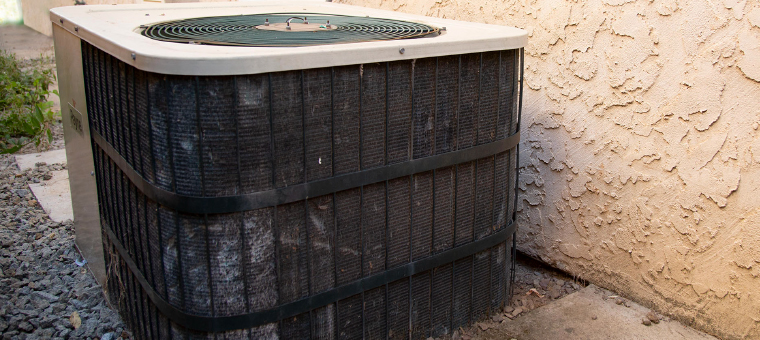




So, how can you tell if your Air Conditioner needs a repair? Or maybe yet, a replacement. Its April and you are ramping up the use of your trusty AC, however, you are noticing something about it that is needing your attention. You may have come to realize that over the years your AC has already been through several repairs and remarkably, it's still going. The thing is, you might already need to replace it.
Here are 5 common signs that you may have to get yourself a new air conditioner:
One of the most telling signs of an AC that is past its prime is that after several repairs, it just is no longer consistent when cooling your room. When you first turn it on, it just blows warm air, and then it takes more than a few minutes to come up with cool air. Even then, it is not as cool as it used to be. For some, it might just be a case of blockage in the duct or maybe a thermostat that needs to be replaced.
But if it is something that is regularly occurring then it might be time to replace your AC.
Grinding, loud squeaking, rattling, and sometimes a little bit of sporadic banging from wherever inside your unit could be signs that wear and tear has already had its way with your AC. A normal operating AC of considerable quality would barely make noise when it runs. But if your unit is getting too loud and is unusually troublesome because of the racket, and, you just had it repaired the previous month. It might do you good to have it replaced eventually.
An AC that works well should be able to blow cold, crisp, and odorless air from its vent. However, if you smell something strange like a burning or a musty, moldy smell that doesn't go away, it's about time to check your local dealer for a new unit. In fact, something burning could even be an emergency as it needs to be checked immediately.
One of the conveniences of having an air conditioner is its ability to control humidity, if not eliminate it. This is so that you can enjoy a cool and dry environment where you don't feel sweaty or clammy. An air conditioner that is no longer working properly starts to accumulate moisture right on the unit itself. It sometimes drips out in drops of water, or you might see the front panel "perspiring".
Worst case scenario, your unit is already leaking water right inside your room. Fogging windows and moisture in the ducts and vents are also signs of your evaporator coil that is no longer working properly. Mold and mildew can result from these situations and could cause health problems later on.
All appliances have their own life expectancy as to when they are able to deliver optimal service right before they expire. In the case of your HVAC system, it should be useful inside of 10 years or more. Naturally, if your air conditioner is already more than 10 years old, even with proper maintenance it will definitely show some signs of aging that could be a combination of any of the first 4 signs discussed above.
Anyhow, an older air conditioner even though it may seem okay may already be outdated or obsolete unless it has a lifetime warranty. You could be running higher bills in terms of energy consumption, more than how much you will be paying for a brand new, more energy-efficient, environmentally-friendly unit. The use of Freon (refrigerant) in older ACs has already been phased out, due to its effects on the ozone layer. It was replaced by R-410A (in newer models) which doesn't damage the ozone layer.
An air conditioner that still uses freon is already subject to replacement. That goes for older units 10 years and above.
No more problems with humidity and irregular cooling patterns. A new unit will deliver consistent cooling power which will keep you comfortable for as long as need it.
If you find yourself paying more in repair costs that are accumulated versus purchasing a new AC, it would make a lot of economic sense to replace it instead.
Newer models mean better technology which then translates to energy savings, all the way to money savings.